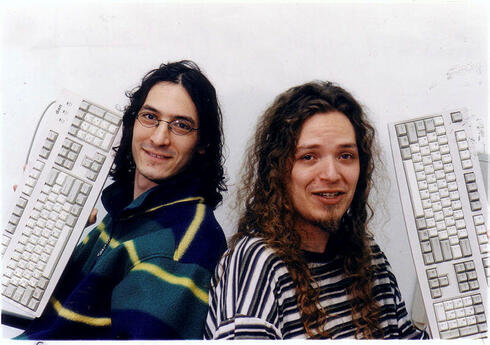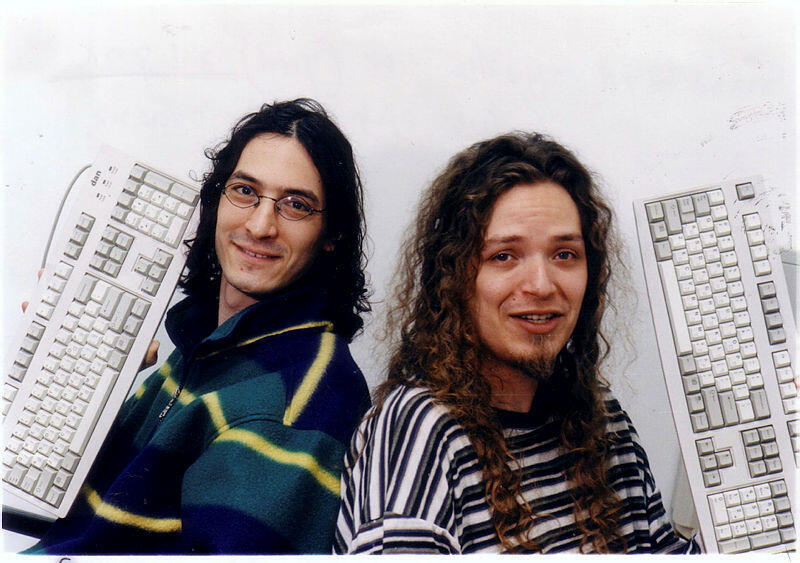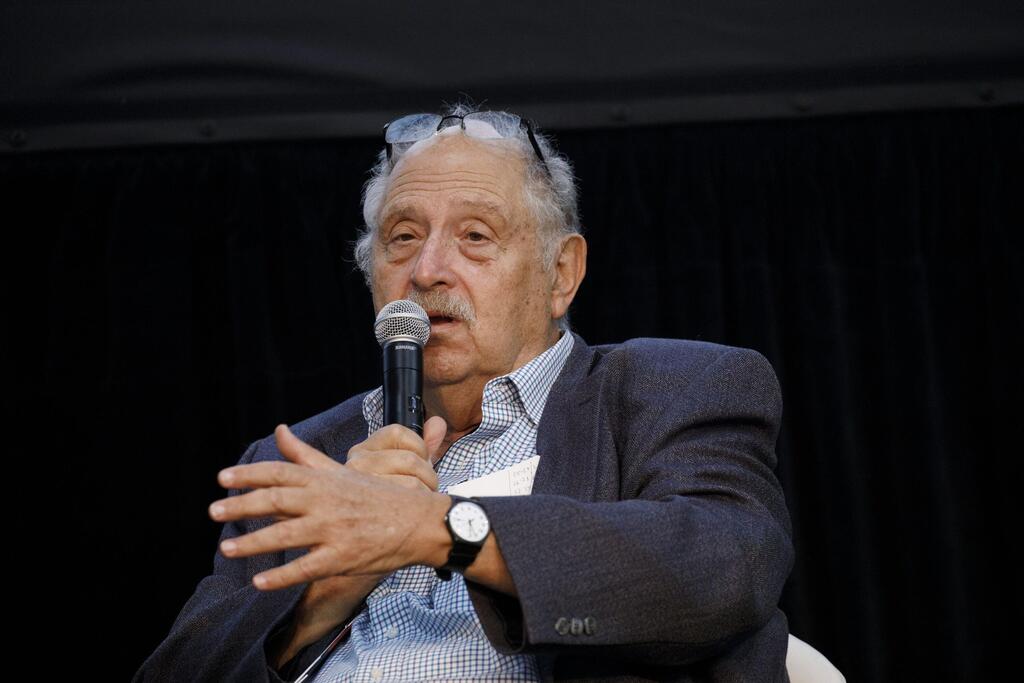
Remember your ICQ number? The story behind how the messaging platform gave birth to startup nation
In a month, after 28 years of activity, the ICQ messaging platform will be shut down. Its sale to AOL jump-started the startup nation in 1998, but at first, the founders just wanted to play ping pong together. How did four nerds from a basement in Israel reach the summit of global high-tech in just two years? An excerpt from the book “The Israeli Mind: The Story of Israeli Innovation”
Mark Zuckerberg will forever have the glory of inventing the first social network, but true geeks know that the really very first such network was invented already in 1996. It happened in Israel and the network was named ICQ.
Those were the early days of the Internet and everyone already had modems beeping as they tried to connect with the World Wide Web, allowing access from every home and office computer to vast and previously imaginary realms of information. In 1994, Netscape launched its Navigator, the browser that conquered the world in just a few months. Its IPO took place in August 1995 and by the end of its first trade day, its Wall Street value was $2.9 billion. That was known as the Netscape Moment - a term describing a media enhanced IPO and the dawn of a new industry. Anyone with some technological or business instinct immediately saw the potential.
Yair Goldfinger, Sefi Vigiser, Amnon Amir, and Arik Vardi - four young geeks who used to meet for ping pong games in Amir’s house - saw that too. Vigiser, a 3D designer and developer, and Goldfinger, a programmer, were old acquaintances from their years of working together on Israel’s hottest TV game show of the 1990s.
Amir was a good friend of Vigiser and worked with Vardi for Zappa Digital Arts. Between pings and pongs, the four started toying with the idea of a joint project.
They brainstormed ideas and Vigiser took notes in a book he still keeps. After lengthy deliberations, they chose what seemed like a breakthrough idea: connecting pager (or beeper) networks to the Internet. Pagers were primitive communication devices designed before cellphones even emerged. People used to carry pagers in their pockets or clip them on their belts. The pagers would beep when their owners received a message. In response, pager owners had to find the nearest phone and call their service center, where human operators would read out the message and give senders’ names orally. The four, who already established a company they had named Mirabilis, decided to take the service hub out of the equation and sought a way to receive the same messages via the Internet. They even named their future product MetaWear. The four started designing their software and occasionally had to get online at the same time to coordinate their next moves. In those years, however, getting online meant having your modem dial your Internet provider - a tiresome and complicated operation in itself - and by the time you were connected you could cook your lunch and eat it too, while your modem made its weird beeping noises. Soon Goldfinger grew tired of the need to call his partners every time and tell them to get online. Instead, he first and then his friends decided to develop a tool that would notify each of them when the others are online.
And so, while trying to find an effective solution for pagers (currently extinct), they came up with the world’s first instant messaging software that laid the grounds for future social networks. Delivering messages over the same platform was the natural next step because until then, most of the online activity took place in chat rooms.
Once they realized their idea was much more interesting than the original one - and that it could serve the entire population, not only the few who carried pagers - Goldfinger, Vigiser, Amir, and Vardi locked themselves up in a basement for 18 hectic development months, and emerged with ICQ. “We could have gone for another idea just the same. We did not even have the time to consider how big this would be. It was pure fate,” the Mirabilis founders later said.
The Internet rush
The entire process was accompanied by Yossi Vardi, Yair’s father, who to a large extent is responsible for its success. In those days, Yossi Vardi was one of the most prominent and eccentric entrepreneurs on the local and international high-tech scene. He held several key positions in the private and business sectors.
in the 1970s, was appointed director general of the government’s Development Ministry at the age of 27, later served as CEO of Israel Chemicals (then, still a government owned firm), and was the first Energy Ministry director general. In the 1990s, he became interested in new technologies and co-founded the Techem software firm. He also spent several years in the USA, where he formed ties with American business leaders.
Vardi decided to dedicate himself to Mirabilis, knowing that he must strike the iron while it is hot. Shortly after the Netscape IPO, Hotmail - the first email software developed by two young Americans - was sold to Microsoft for $400 million. Huge sums of money were channeled into anything labeled Internet related and many rushed into this new and promising market. The ICQ concept of directly and immediately connecting Internet end users was innovative and attractive, but also rather simple to develop. As its user base expanded, it required more and more resources, mainly to pay for powerful servers that would not crash with extended traffic. Mirabilis required strong financial backing to drive it forward fast, before the competition came up with their own solutions.
In those days, all of the communication giants were pursuing users so as to inflate their value. ICQ had the advantage of actually being viral, spreading by word of mouth. Its users, mainly Israelis in the first stage, simply sent messages to friends, inviting them to install the software and communicate with them and each other. Thus, shortly after it was launched and with almost no marketing or PR efforts, ICQ acquired nearly half a million users. To many, ICQ became the main reason to even use the Internet, whose contents then was rather meager as it mainly served the scientific and business communities. Yossi Vardi made some predictive calculations of the potential number of users and realized he had winning figures. Then, attending a technology conference in the USA, he offered his goods directly and simply as the man himself to the AOL management.
Those figures, which eventually became real, fired the imagination of the AOL people and negotiations started. In June 1998, a contract was signed according to which Mirabilis was sold to AOL for $287 million in cash and another $120 million were contingent on meeting the business goals. Mirabilis, which was then only two years old and had some 70 employees, most of whom worked there less than a year, landed a $407 million deal.
That was the first Israeli exit and it even turned the very term “exit” - thus far spoken only in elegant conference rooms of Wall Street investment banks or open spaces in Silicon Valley - into a legitimate Hebrew word. The pictures of Goldfinger, Vigiser, Amir, and Vardi in the traditional geek look - long hair, glasses, and t-shirts - adorned newspapers and ignited the imagination of tens of thousands computer aficionados. That was the revenge of the geeks. It was hard to believe that those young men, all in their early 20’s, were suddenly worth more than $100 million each.
After the deal was signed, Yossi Vardi was crowned “godfather of Israeli high-tech” and “global startup guru” though he never again had an exit of similar magnitude.
Fortunate brothers
Owned by AOL, ICQ met every expectation. It quickly crossed the line of one million installations a month and had some 100 million registered users at its peak in 2001. Vardi’s forecasts proved correct too: ICQ encountered fierce competition and new technologies undermined it. In 2010, AOL sold ICQ to Russia’s DST for only $187 million, and the Israeli development center was closed in 2012.
The four founders parted ways and have since vigilantly kept to themselves. Vigiser and Goldfinger remained partners in a real estate project. Yossi Vardi is still involved in numerous startups, rarely misses important technology conferences, and is often invited to address the most prestigious forums, including the Economic Forum of Davos of which he is a permanent member.
So what do you do when you land $120 million before you turn 30? First you act a little wild, but then things go back to normal. As Goldfinger explained: “Let me tell you what my brother always says: “I am sorry it did not happen to me, but I am glad it happened to nobody else’s brother but mine.”















